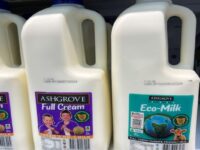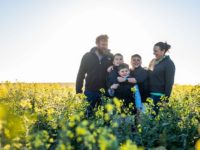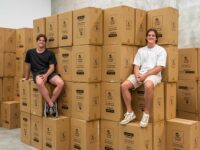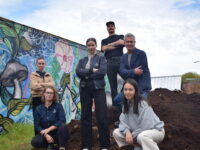This week we talk to Stephanie Hughes, founder of start-up RawBulkFoods, a venture that has conceived a new way of shopping for the pantry that offers Australian-grown products straight to consumers’ doors minus all the plastic junk, pesticide sprays, and so on often associated with food distribution.
IFMCG: What was the inspiration behind you founding RawBulkFoods?
SH: I felt a need of wanting to do more and operate a business with purpose, but I had no idea what in. I had worked in financial services and data my whole life, learning a tonne about business and the mistakes people make in it. My career has allowed me to travel a great deal, so I have seen the extent of the plastic problem with my own eyes. Even though I was well paid and doing well on my career path, I was fed up with it being purely financial and I felt I was lacking a purpose. I had taken gradual steps towards making more eco-friendly purchasing decisions which prompted me to start thinking about ways I could use my business skills in a sustainable way.
One day I had left a supermarket: as always I had my reusable bags on my shoulder and reusable coffee mug in my hand, but this day was different – I had taken more time to really look on the shelves and in peoples’ shopping trollies, and I couldn’t believe the extent of plastic and poor-quality food. It occurred to me there was a huge gap in the market – we all had reusable items yet the stuff going inside them was built on a foundation of single-use plastic and often flown the equivalent of twice around the earth before it got to consumers. I thought to myself, “Imagine if everyone in Australia could shop local, minus the single-use plastic? I set out with two goals – one, to be farm to door minus the single use, and two, how could we reuse the junk that already existed.
IFMCG: I understand you are funding the business through a kickstarter campaign – how simple was it to create that campaign, and how is it being received?
SH: Firstly we made sure we fully had our business concept nailed down which took tonnes of prototyping and many hurdles to jump over as we are creating something new. I always hada clear vision of what I wanted to achieve, I had to work out how to get there. My little team and I then spent five months building the campaign and getting feedback.
The first morning of our campaign got off to a flying start, hitting our target in just 38 minutes and doubling it in two hours – testament to the fact that Aussies are keen on supporting a better solution.
IFMCG: How does your “circular” model significantly reduce the food waste generated by more traditional methods people use to stock their pantry?
SH: Food waste is reduced by the fact people can order the exact quantities they need with regard to the ingredients we only use a couple of times, for example certain flours and spices. Our “lifetime jars” keep ingredients ultra-fresh through the way they are designed which avoids food going off. And our circular model means our packaging is reused over and over again. Our refill bags are delivered to you – once you fill your jars, you roll up your bags and send back to us in a prepaid envelope. We clean and reuse over and over again, meaning no waste The average household is throwing away approximately 540 of these types of bags per year that are used for a few seconds yet last a lifetime in landfill.
IFMCG: And how are you approaching your supply chain and delivery models in order to reduce carbon emissions?
SH: We source from local farms to avoid food travelling 1000s of unnecessary kms. Research shows an average shopping basket has travelled 70,803 kms before we get it as a consumer, so you can only imagine the CO2 impact of this. By sourcing locally we reduce our carbon emissions drastically and our premises is 100 per cent solar-powered.
IFMCG: What is your vision for the development of the business in the next couple of years?
SH: Our current focus is on the Kickstarter campaign, getting enough support to actually bring us and this concept alive. We are forming partnerships with leading organisations to pull plastic trash from the ocean, and we plan optimise the use of electric vehicles four our deliveries.
IFMCG: And, finally, what is the number one lesson you’ve learnt on your journey to date you’d share with others looking to start their own business?
SH: My biggest learning on this journey has been that people go above and beyond – your network, your team, friends and family – to help you succeed, and quite often do things without asking which has been an integral part to getting me and our business here. You can have the idea, business plan, fund it and know your vision but you need people to really make it happen, Always be thankful for an extra hour worked, a post shared, and a kind word said to you about what you are doing.
This story originally appeared in our sister publication, Inside Small Business.

















